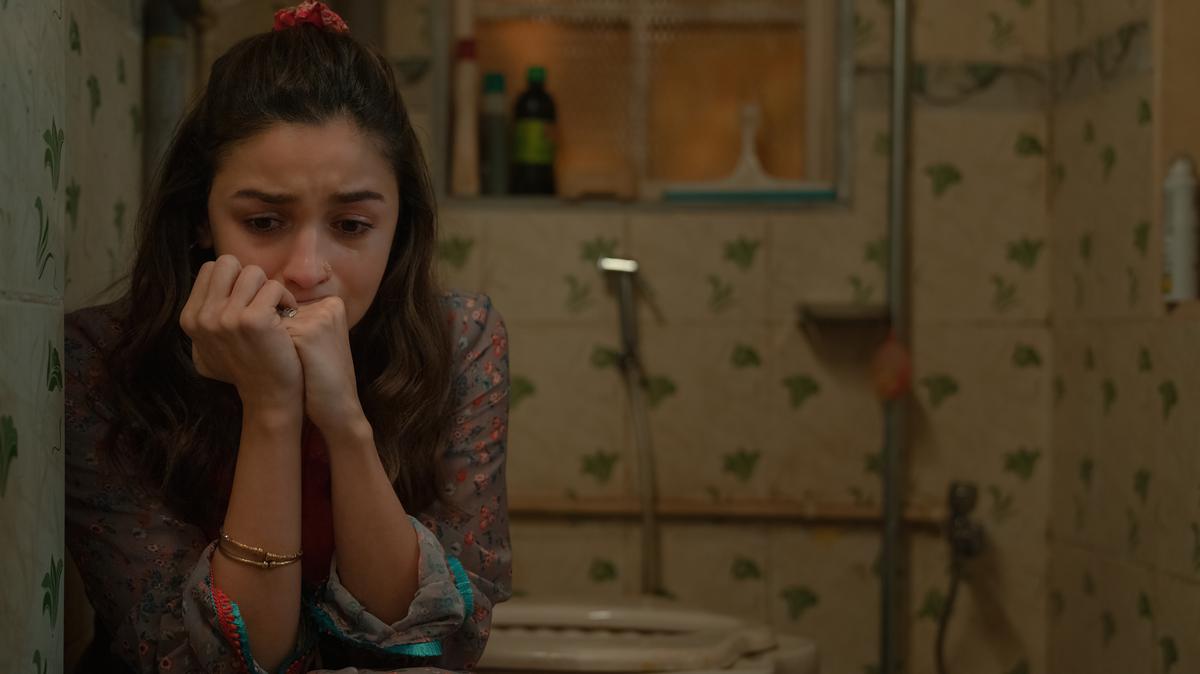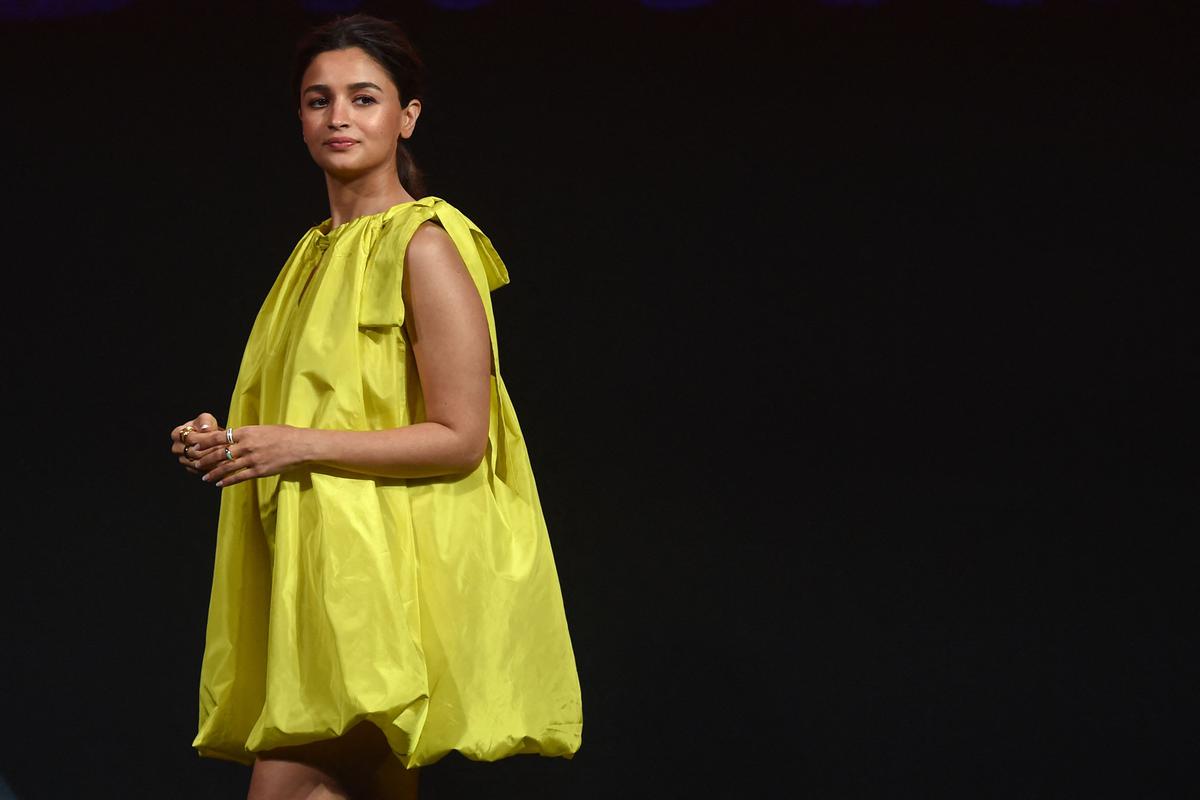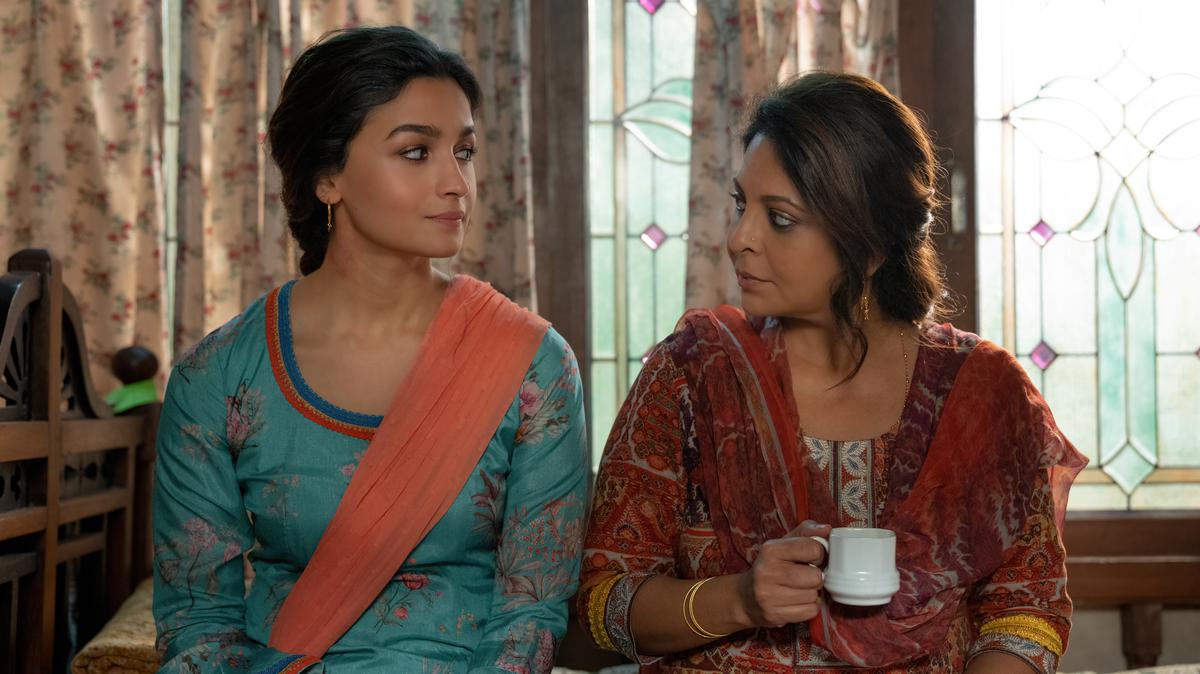Alia Bhatt on the dark comedy in Darlings, turning producer and learning balance from Ranbir Kapoor
Alia Bhatt opens up about negotiating the tightrope of dark comedy in ‘Darlings’, turning producer and learning balance from Ranbir Kapoor
Alia Bhatt opens up about negotiating the tightrope of dark comedy in ‘Darlings’, turning producer and learning balance from Ranbir Kapoor
Alia Bhatt isn’t a stranger to violence. From Veera Tripathi in Highway (2014), who experiences sexual violation, to Mary Jane in Udta Punjab (2016), who is physically assaulted, to Safeena in Gully Boy (2019), who is a product of violence, to the more-recent Gangubai Kathiwadi (2022), Bhatt has often chosen characters that exist on the margins of the societal order and are at the receiving end of male brutality.
In Jasmeet Reen’s Darlings, written by her and Parveez Sheikh, Bhatt’s encounter with violence is further heightened when her character, an economically oppressed Muslim woman, finds herself in an alarmingly abusive marriage. However, there’s a marked distinction between Badru and the characters Bhatt has essayed in the past. It’s also this distinction that is at the heart of the film: here, her romantic partner’s abuse often masks itself as an expression of love. The film might as well have been called Gaslight.
“To see her being drawn towards something as manipulative as that was interesting to me to play. It shows you how confusing it is to leave an abusive marriage. It’s not a switch that goes on and off,” she says during a recent conversation at Mumbai’s Taj Lands’ End. At times, it feels that if the otherwise assertive Safeena from Gully Boy had been tamed by her circumstances and gotten into a toxic marriage, she’d become a version of Badru. Both are oppressed-class Muslim women who live in the ghettos but Bhatt points out that Safeena was a lot more assertive and didn’t care even if she lied to get her way, something Badru’s moral compass wouldn’t allow her to do.

Alia Bhatt in ‘Darlings’
| Photo Credit: Bhavyanshu Singh/ Netflix
“Because the perspectives are different, the performance is different,” she says. “In the scene where she’s breaking plates, she’s not angry at Hamza [Vijay Varma] for being violent towards her. She’s angry at herself. Self-blame is a common pattern among victims of abuse.”
Darlings captures the complexity of abuse. Despite giving her an empowering narrative arc, it’s a film that illustrates how impossibly difficult it can be to stand up to, let alone escape a violent partner. Bhatt is extraordinary in it, but that’s come to be expected of her performance by now. The film’s only flaw, and it’s a major one, is that it pre-empts the mother-daughter’s action by seeding it explicitly early on. So the choice doesn’t feel organic, it feels engineered. However, the humour and the performances make up significantly for the occasional narrative weakness.
Learning to pause
A popular perception is that Bhatt can do no wrong. In the 15-odd films that she has done so far since her debut in 2012, there’ve been only two misfires: Shaandaar (2015) and Kalank (2019). That’s a disproportionately high success ratio by regular Bollywood standards. Shah Rukh Khan once said that he worries for her because there’s ‘too much, too soon’.
Bhatt ponders over this, saying she’s aware of how her graph is playing out but she doesn’t take the process too seriously. Her argument is backed by her lightness of being: there’s an air of effortlessness in the way she carries her stardom. Now that in itself could be strategy: a key appeal of the millennial star is how accessible and relatable you are. For the Insta generation, the star who’d feed off mystique and curiosity is an outlier.

Alia Bhatt at the Darlings’ trailer launch
| Photo Credit: AFP
Which brings us to her partner, Ranbir Kapoor. Urban legend suggests that Kapoor isn’t subservient to his stardom. He employs it per his choosing. When the spotlight switches off, so does he. Bhatt, by her own admission, has been a restless soul for whom the idea of pause is perhaps stressful. To her, the idea of someone gazing into the abyss of nothingness from a balcony, would be strange. But now, she’s the one standing alongside. Her fear was — and turns out she does have a few — that her work would consume her to the point of being lost. “To many, the choices in my personal life would suddenly seem a little loud,” she says. “Marriage, a baby… at 29? But it’s not about age. It’s about what feels right. I’ve been working for 12 years now and it’s so easy for actors to get sucked into a world that revolves only around you.” She points out that she was very satisfied with the way her career was unspooling. She was telling stories she wanted to, making money, and more importantly, entertaining people.
However, she needed something more to care about other than just work. “You don’t even realise when that same entertainment, same storytelling and the same world can consume you. Ranbir makes me feel more anchored. The word ‘detached’ is thrown at him very loosely, but he’s very balanced. Unlike me. I had started feeling too attracted to the chaos. Now, I’ve observed a shift in myself. It’s from the realisation that it’s important to have an identity that extends beyond just being an actor.”
Accepting new challenges
While she’s obviously pointing towards personal growth, in her professional life too, Bhatt has taken the leap and turned producer with Darlings (and completed a major Hollywood film, Heart of Stone). She says the challenge is to see how she does “in a different role” having found the confidence in her acting endeavours.
“Acting is now dal-chawal [routine]. But being a producer is new. Do I have it in me? Can I sit in a room full of young people, ideate, and back strong stories? I’m excited to find out. We’re a boutique production house. And I feel the hallmark of a great actor-producer is when they can back a story without being the face of it.”
If not as an actor, as a producer, did she ever worry that the humour in Darlings could get dark to the point of being tone deaf? Ultimately, when a certain line is breached, as a viewer, maybe I can’t laugh at some of the things. “We were very aware of it being a slippery slope. But I think it has been managed well. At no point is Badru’s pain played out for laughs. It’s always the situation and how the characters react to it. For instance, when Shefali Shah [who plays her mother] says, ‘ Teen saal se teri shakal ka dhobi talao ho gaya hai [since three years, your face has been wrung dry].’ You laugh because of how it’s said, not because of what has been done.” That’s really at the core of the film: humour is the coping mechanism of Badru and her mother. One of the many weapons of their choice to cope with abuse.

Alia Bhatt and Shefali Shah in a still from Darlings
| Photo Credit: Bhavyanshu Singh / Netflix
In one of my earlier conversations with Bhatt, she had spoken about the epiphanies she had during Udta Punjab. With Darlings, her takeaway was that retributive justice isn’t justice at all. Violence, as she has learnt from her fictional life, is complicated. It’s learnt, imitated, and inherited. Badru comes close to inheriting the legacy of abuse. But chooses not to. “Just because you are inflicted with pain doesn’t mean you inflict pain.”
Darlings is streaming now on Netflix.
The Mumbai-based writer was formerly the entertainment editor of ‘HuffPost India’.
Stay connected with us on social media platform for instant update click here to join our Twitter, & Facebook
We are now on Telegram. Click here to join our channel (@TechiUpdate) and stay updated with the latest Technology headlines.
For all the latest Entertainment News Click Here
For the latest news and updates, follow us on Google News.

